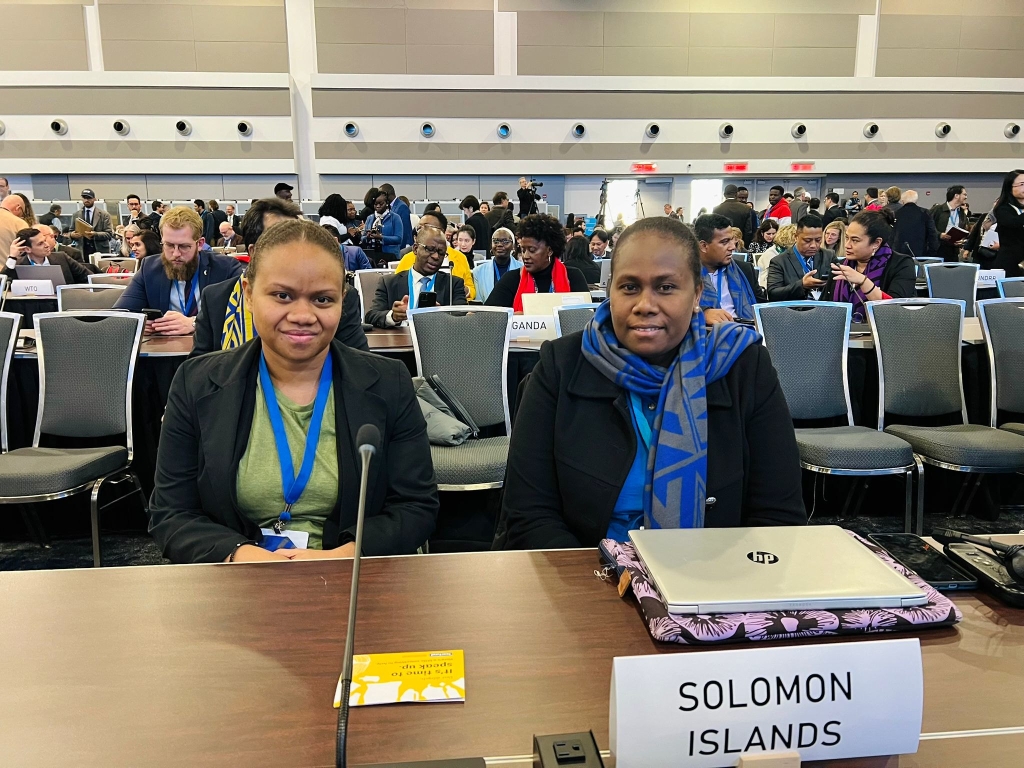
Addressing the gap between the few chemicals in plastics that are regulated globally and the growing number of chemicals of concern that are known to be used in plastics but are not identified for listing either for elimination, avoidance and minimization, is critical in the plastics treaty negotiations.
Overwhelming evidence globally shows that the toxic chemical, additives and pollutants found in plastics pose serious risks to human and planetary health.
Findings from recent studies show that around 16,000 chemicals are used to make plastic. Only 6 per cent of these are subject to global regulations and at least 4,200 of these are considered to be “highly hazardous” to human health and the environment.
“The Solomon Islands is witnessing the devastating impacts of plastic pollution that is degrading our land, choking our streams, rivers, coastal waters and the ecosystems and marine environment we rely on for our livelihoods and food security. We need to reconsider our production and consumption habits, our mindsets and our behaviours towards plastics upstream from extraction and production, and downstream from waste management to remediation,” said Ms Debra Kereseka, the Deputy Director of Environment in the Solomon Islands.
“We are also very aware that no matter what we do, much of the plastic pollution entering our Pacific Ocean waters are from outside sources beyond our control. It is imperative we address the root causes of this problem by reducing and eliminating primary plastic polymer production and plastics, removing harmful chemicals from plastics that are being produced and holding plastic product producers responsible for their end-of-life products through binding control and management measures,” Ms Kereseka added.
Solomon Islands is one of 14 Pacific Island countries engaging with more than 2,000 officials from over 170 countries globally at the fourth Intergovernmental Negotiating Committee to develop an international legally binding instrument on plastic pollution, including in the marine environment (INC-4) in Ottawa, Canada.

Pacific Islands have called for binding control measures addressing chemicals of concern as part of a comprehensive approach to ending plastic pollution that addresses the full life cycle of plastic, as mandated by the UNEA Resolution 5/14 in 2022.
According to scientific definitions, plastic polymers and their production processes constitute a vital part of the full life cycle approach and are included in the future treaty’s scope. The production processes and the polymers themselves contribute significantly to pollution. Without recognising and addressing plastic polymers, the future treaty will fall short of fulfilling the mandate outlined in UNEA Resolution 5/14.
Cook Islands along with Norway and Rwanda have put forward a Conference Room Paper for consideration by the INC membership on chemicals of concern in plastics outlining an approach to criteria and listing of chemicals of concern in plastic.
The fourth Intergovernmental Negotiating Committee to develop an international legally binding instrument on plastic pollution, including in the marine environment is taking place in Ottawa, Canada, from 23-29 April 2024.
The Pacific Islands are represented by the Cook Islands, Federated States of Micronesia, Fiji, Kiribati, Marshall Islands, Nauru, Niue, Palau, Papua New Guinea, Samoa, Solomon Islands, Tonga, Tuvalu and Vanuatu through the support of the Government of Australia and the United Nations.
They are supported by the Secretariat of the Pacific Regional Environment Programme (SPREP), working with partners the Pacific Islands Forum Secretariat (PIFS), Office of the Pacific Ocean Commissioner (OPOC), The Pacific Community (SPC), Forum Fisheries Agency (FFA), Environmental Investigation Agency (EIA), Centre for International Environmental Law (CIEL), University of Wollongong, WWF and Massey University.
For more information visit: https://www.unep.org/inc-plastic-pollution/session-4